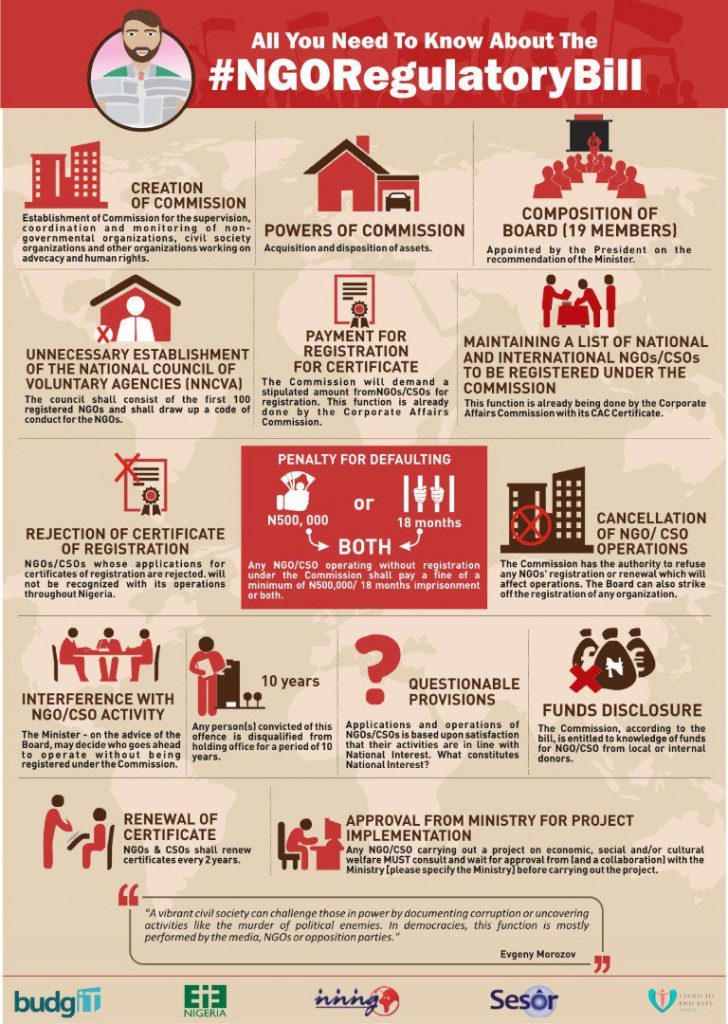by Opeoluwa Quadri
An unjust law is a law with no human face, that which affects the grundnorm, which does not encourage justice, fairness and equity, the purpose of a law is what defines it, not the fact of its existence. It is only a democratic society that offers the needed conversation and engagement to put such proposed law to test before they actually become law.
The NGO bill is one of those unjust laws, no matter the intent behind it, the fact is that the impact on the objects of such law is what matters, without also forgetting the context, sociopolitical or otherwise upon which the law is situated.
The problem with the NGO bill is that, it is a self standing proposed law that is focused on a one sided view, There is no need to solely dedicate another bureaucracy to the regulation of NGOs when we already have laws inhibiting their activities in one way or the other. The NGO bill will not only harm the CSOs but Nigerians who are beneficiaries of their services.
In third world countries, especially in countries like Nigeria, NGOs have become alternative to state, alternative to government. In areas where government fails, NGOs easily comes in and render services to better the lives of citizens in such areas, some of them do this with help from donor organizations abroad, what happens if we have to put bureaucratic impediments in the way of NGOs rendering humanitarian services in the Northeast? The idea behind such service is not for them to be regulated by the state, but for them to freely come in when the state fail or when they do not have enough resources to cater for the needs of their citizens.
This NGO bill wants to create a commission, or call it a bureaucracy financed with tax payers’ money, it will comprise of a board with 19 members appointed by the President based on the recommendation of the minister, some of their responsibilities will include, maintaining a list of National and International NGOs/CSOs to be registered under the commission, they have the power to reject the certificate of registration, they can also put an end to the operations of NGOs/CSOs. In all, they are established to have a direct influence on the activities of NGOs.
There are so many other issues that need the attention of the state, regulating the NGOs is the least of such, it defeats the spirit behind their activities, and sometimes affects the enthusiasm of those who are interested in such services. These organizations have gained the trust of citizens where government has failed or where resources are insufficient, regulating them only complicates the socioeconomic predicament citizens are facing.
We advice the law makers to put a complete end to deliberations on the NGO bill and maintain the status quo.
